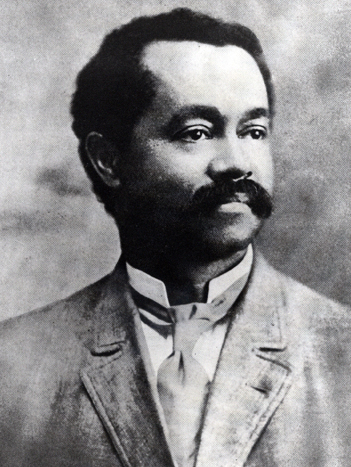
Charles Henry Turner
(1867 - 1923)
Biologist, Neurologist, Psychologist, and Chemist

Charles Henry Turner
Charles Henry Turner was a biologist, neurologist, and psychologist who achieved an international reputation as a researcher in animal behavior, concentrating on bees and ants. He was the first African American to earn a Ph.D. from the University of Chicago, to earn a doctoral degree in zoology, to publish in the Journal of Animal Behavior, and possibly the first African American to publish in the prestigious journal Science.
Born in Ohio shortly after the Civil War, he had a keen and inquisitive mind and an avid interest in nature. He was valedictorian of his high school class and earned B.S. and M.S. degrees in biology from the University of Cincinnati before obtaining his Ph.D., magna cum laude, from the University of Chicago in 1907. The same year, he was a delegate to the Seventh International Zoological Congress. In 1912 he became one of the few African Americans elected to membership in the Academy of Sciences of St. Louis.
After serving briefly as an instructor at the University of Cincinnati and for several years as a professor of biology at Clark College (now Clark University) in Atlanta, he spent most of his career as a biology teacher at Sumner High School in St. Louis while carrying out pioneering studies in comparative psychology and insect behavior. He was the first to prove that insects have the capacity to hear and that they can learn by trial and error. His numerous publications made him one of the most influential scientists in his field in the early 20th century.
Links to Additional Information
Charles Henry Turner site from Oklahoma State University
Selected Papers and Biography of Charles Henry Turner from Mellen Press





